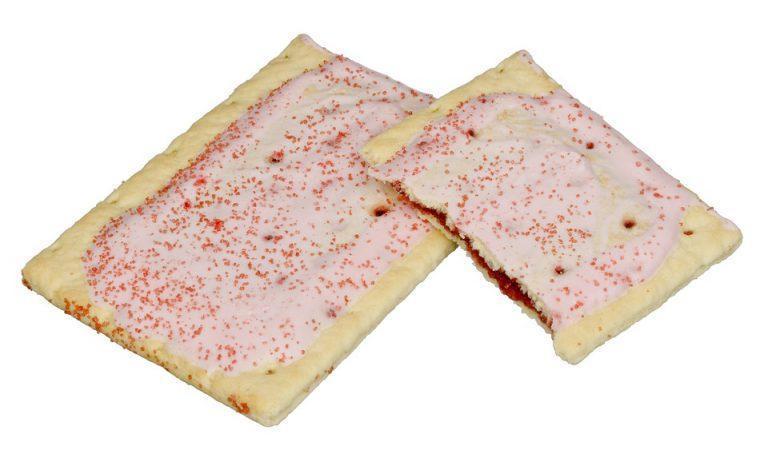In a big win for fans of toaster pastries, a federal lawsuit against Kellogg’s for deceptively marketing strawberry Pop-Tarts has been thrown out of court.
On March 1, a U.S. District judge in Chicago dismissed a putative class action seeking $5 million from Kellogg’s for alleged deception in depicting its pop-tarts as being stuffed with filling made of real strawberries. In fact, the filling contains pears, apples and strawberries and – as any lover of pop-tarts knows – it doesn’t exactly ooze as shown on the box. The suit asserted claims for negligent misrepresentation, breach of express warranty, breach of implied warranty of merchantability, and unfair trade practices under both U.S. and state law.
“No reasonable consumer could conclude that the filling contains a certain amount of strawberries based on the package’s images and its use of the term ‘strawberry,’” according to the dismissal order.
The court said “the packaging doesn’t suggest anything about the amount of strawberries in the filling or guarantee that the filling contains only strawberries,” according to this story in the ABA Journal. “The plaintiff’s interpretation of the label ‘is unreasonable and unactionable.’”
Read the dismissal order here.
Read news accounts of the case here, here and here.
Few areas of the law are changing more rapidly than Cannabis Law. Legal and ethical issues regarding marijuana (medical and adult-use), hemp and CBD touch on practically every area of the law: from litigation and contracts, to licensing and zoning, to business formation and insurance. Having a working knowledge of the basics is essential. Plan now to attend the free, one-hour, live CLE webinar “Cannabis Law Chapter One: Covering the Basics from Ethics to Insurance” on March 30, 2022 at 12 noon CST. This webinar features two of the most experienced, knowledgeable and impactful lawyers in the U.S. on cannabis law: Lisa L. Pittman, chair of the American Bar Association Cannabis Law & Policy Committee, whose pioneering efforts led the ABA to formally embrace this emerging practice area; and Khurshid Khoja, chair of the National Cannabis Industry Association, the country’s oldest and largest cannabis trade organization. The course will highlight key substantive topics, address ethical concerns, offer best practices for risk management, and identify ethical concerns. It will also give you online links and key resources for your continuing education. This free, one-hour webinar is the latest in Alta Pro’s ongoing series of cutting-edge CLE programs. Register here.
ABA Model Rule of Professional Conduct 3.1: Meritorious Claims
A lawyer shall not bring or defend a proceeding, or assert or controvert an issue therein, unless there is a basis in law and fact for doing so that is not frivolous, which includes a good faith argument for an extension, modification or reversal of existing law. A lawyer for the defendant in a criminal proceeding, or the respondent in a proceeding that could result in incarceration, may nevertheless so defend the proceeding as to require that every element of the case be established.
Comment [1] The advocate has a duty to use legal procedure for the fullest benefit of the client’s cause, but also a duty not to abuse legal procedure. The law, both procedural and substantive, establishes the limits within which an advocate may proceed. However, the law is not always clear and never is static. Accordingly, in determining the proper scope of advocacy, account must be taken of the law’s ambiguities and potential for change.
Comment [2] The filing of an action or defense or similar action taken for a client is not frivolous merely because the facts have not first been fully substantiated or because the lawyer expects to develop vital evidence only by discovery. What is required of lawyers, however, is that they inform themselves about the facts of their clients’ cases and the applicable law and determine that they can make good faith arguments in support of their clients’ positions. Such action is not frivolous even though the lawyer believes that the client’s position ultimately will not prevail. The action is frivolous, however, if the lawyer is unable either to make a good faith argument on the merits of the action taken or to support the action taken by a good faith argument for an extension, modification or reversal of existing law.
Source: ABA Model Rule 3.1
Want a discount on Clio practice management software products? You’re eligible if you practice in Wisconsin, Texas, Minnesota, Ohio, Illinois, Indiana or Michigan and are a member of the Alta Pro Lawyers RPG. In addition to Clio discounts, you’ll get access to free webinars, the Pro Practice Playbook, Reminger ProLink, Ask the Risk Pro and more. Here’s how to join.

















